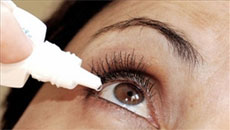If you live above the latitude 37°N, which includes all of Canada, you are at risk for low levels of vitamin D. The primary source of vitamin D is from UVB radiation from sunlight. Through casual sun exposure, our skin synthesizes vitamin D. However, reduced levels of vitamin D is produced by the skin at this latitude; from October to March the atmospheric ozone easily filters out Ultra Violet B (UVB) radiation. Moreover, as South Asians we are at a greater risk due to lack of adequate sun exposure in comparison to our native ancestors, in addition our diets lack adequate vitamin D.
Having vitamin D insufficiency (25-75 nm/L) or deficiency (<25 nm/L) can increase your risk in the following diseases:
Coronary Heart Disease; Peripheral Vascular Disease; Stroke; Breast, Colon and Prostate Cancer; Diabetes; Infections; Renal Disease; Anxiety; Depression; Dementia; Cognitive Impairment; Falls; Fractures; Osteoporosis; Rickets; Fibromyalgia; Autism; Epilepsy; Headaches; Multiple Sclerosis; Parkinson Disease; Dental Caries; Asthma; Respiratory Tract Infections; Pneumonia; Eczema; Acne; Psoriasis; Bacterial Vaginosis; Polycystic Ovarian Disease; Gestational Hypertension; and Pre-Eclampsia.
As you can see, vitamin D affects our entire body. In sum, vitamin D can lower blood pressure, decreases cholesterol, increases insulin sensitivity, decreases inflammation, increases calcium and phosphorus absorption in the gut, increases bone mineralization and inhibits tumor proliferation.
Currently Health Canada recommends 600 IU (15 mcg) to 4000 IU (100 mcg) per day for children and adults ages 9-70. To find out if you have a low vitamin D level, a blood test is required, specifically a 25-hydroxy vitamin D level. Please consult your physician to assess your vitamin D level and individual requirements. It is an inexpensive supplement that may be the single most cost effective intervention that we have today.
Sidebar/Pull-out Quotes/Quick Facts
On Dr. Mehmet Oz’s list of the “5 Tips for a Happier Life,” the number one tip is ‘Take Your Sunshine Vitamin.’
According to Dr. Oz, vitamin D increases serotonin, which is the mood neurotransmitter. It boosts your immunity, promotes healthy neuro-muscular functions and helps protect you from some forms of cancer. He says “the easiest way to reap the benefits of this nutrient is to spend 15 minutes in the sun a few times a week. Be mindful that sunscreen will prevent you from getting adequate vitamin D outdoors; try skipping sunscreen for just 15 minutes. If the weather isn’t cooperating, get your vitamin D from milk, egg yolks or supplements (1000 units per day).”
Vitamin D-rich Food include the following:
• Milk, Soymilk and Tofu – is fortified with vitamin D, which is critical for bone health
• Orange Juice – is fortified with vitamin D and calcium
• Fish oil, such as cod liver oil – is a good source of with concentrated vitamin D with over 300 per cent of your daily intake per tablespoon
• Fish – herring, catfish, salmon (sockeye, pink, chum), steelhead trout, halibut, mackerel, tuna – fish are high in vitamin D, as they feed on zooplankton/plankton, which is full of vitamin D
• Oysters, Mollusks and Shrimp – naturally absorb sunlight, are rich in vitamin D
• Shiitake and Buttom Mushrooms – the dried versions, which have dried in the sun and not artifical light, are high in vitamin D as the mushrooms are adept at soaking up high amounts of sunlight
• Eggs – contains vitamin D in small amounts, eating on egg will provide 10 per cent of your daily needs
Health Benefits of Vitamin D:
• Prevention of chronic diseases from different forms of cancer to diabetes, heart disease and hypertension
• Protection and lubrication of your bones, teeth and hair
• Regulation of cellular growth and healthy cell activity
• Overall reduction of the inflammatory response, a condition known to cause many chronic diseases
• Protection against adult osteoporosis
• Reduction in the risk of breast cancer in postmenopausal women
• Significant reduction in the occurrence of prostate cancer
One Response to Darpan Health: Vitamin D and the South Asian Population
By Sujatha Nilavar, M.D






